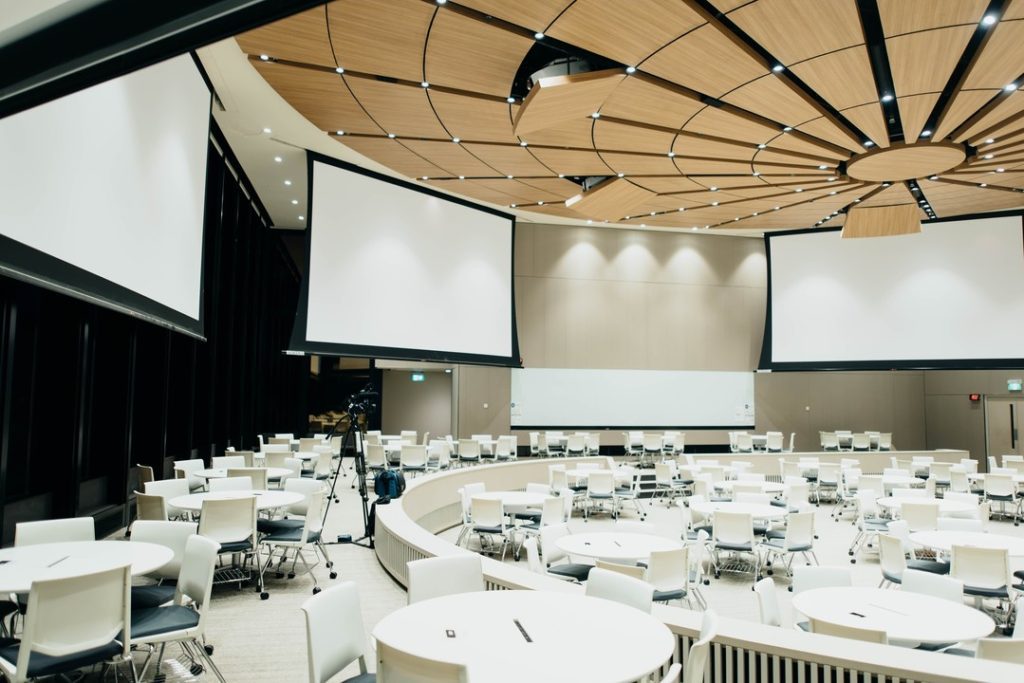It’s 2:55 pm. Your hybrid meeting with a potential new customer starts at 3:00. Your team is in the conference room, and people are starting to enter the virtual lobby. Your snappy video presentation is cued up. All systems go…until 2:59, your meeting connection freezes, then disappears. As you sit in your silent conference room, waiting for outsourced assistance, you wonder: Will your prospective customer disappear, too?
In the new world of the hybrid workforce, a good online impression is priceless, and a technical blunder can cost you credibility as well as lost time and money. It’s not enough to rely on that colleague who’s memorized the instructions for every office camera, mic and input device.
Today’s sophisticated collaboration systems, connected spaces, and meeting infrastructure must work every time, for every user. Leading companies are turning to onsite AV tech support to make this happen. Onsite support is good for the bottom line in terms of cutting employee downtime caused by technical difficulties. Additionally, a strong onsite AV support team can find and fix problems fast while relatively minor.
But there are other benefits as well. Here are some onsite AV support advantages you might not have considered.
Employee morale-building. AV systems are easier to use now than they were even five years ago. That doesn’t mean they’re user-friendly for everyone. Many employees need hands-on support, especially now, as they return to offices with new or updated technology. Having a knowledgeable team member close by can reassure new hires and veteran workers, fostering team building while getting everyone up to speed on your office’s AV capabilities. And with fewer impromptu requests for AV help, your company’s informal AV “experts” can do what they do best without interruption.
Higher quality productivity: Workers today are more mindful of their time at work – wherever that may be – and prioritize the ability to do their jobs without distractions. They want meetings to start on time, run smoothly, and end promptly. Onsite AV tech support makes this possible, providing fast problem resolution. In return, reliable support translates into higher productivity because timely support means workers spend less time waiting for assistance. Time savings are also cost savings, and they add up fast. More importantly, workers know the company has their back. That kind of buzz can give your company an edge in a tight labor market.
Your IT support team can focus on IT issues. Many IT helpdesk calls are requests for assistance with meeting tools – software that doesn’t support a laptop, a sluggish network connection, how to connect a second screen for a presentation. As more companies embrace hybrid work and BYOD levels rise, IT support team members might not know why a presentation on a given laptop doesn’t launch, or how an office productivity software update could affect virtual meetings. An onsite AV tech support team can handle meeting issues and let IT concentrate on enterprise-level issues.
Proactive AV support. An onsite AV tech support team can prevent technical problems before they can impact daily business. A large national fast-food chain, for example, relies on AV-Tech’s onsite support for its corporate headquarters. Both companies are committed to providing great service. As part of that commitment, AV-Tech team members walk around the restaurant chain’s office space every morning, checking equipment and systems. Being onsite allows AV-Tech to ensure that things are working properly in 400-plus meeting spaces, being available for as much (or as little) meeting support as needed. Employees in the chain’s HQ know they can trust AV-Tech to answer their questions and quickly resolve issues, which allows them to concentrate on better serving their customers.
Onsite AV tech support is an investment in more than AV systems. It also sends a powerful, positive signal to your employees and your customers that you value their time and are working to provide the systems they need to conduct business. They can see and hear your commitment.



